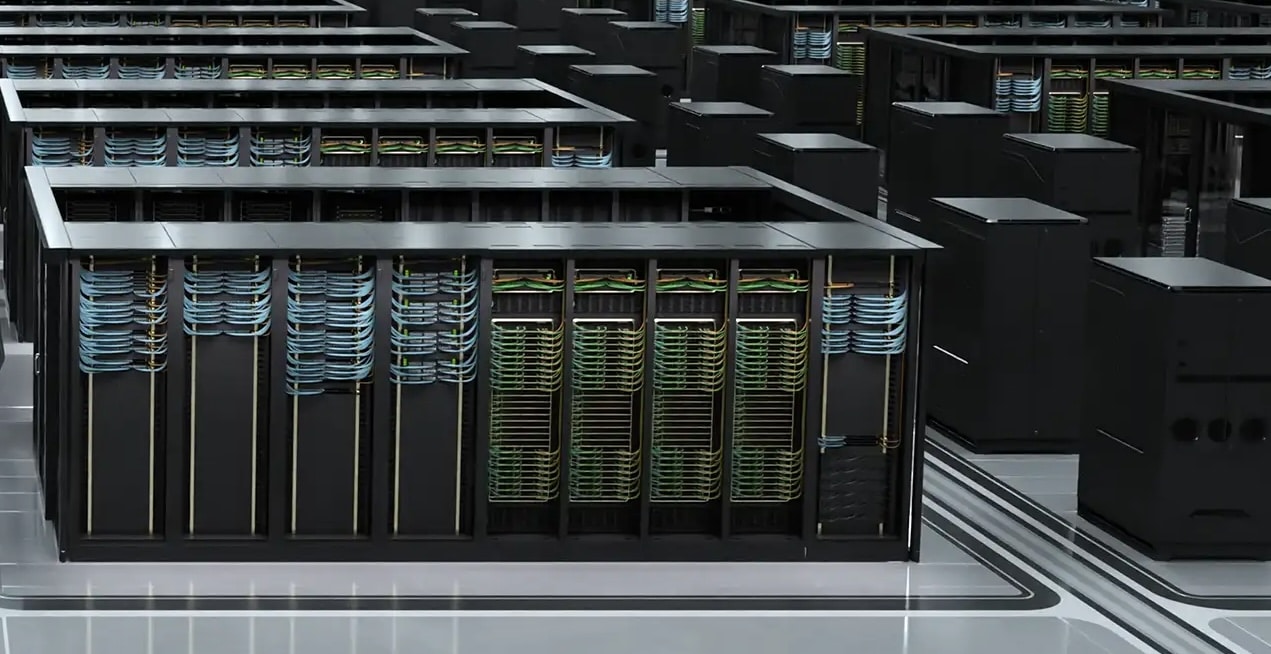Germany has launched an ambitious plan to enhance its technological sovereignty in artificial intelligence (AI) by building a gigantic “Gigafactory” for AI, with the support and collaboration of Nvidia.
🧠 Key Meetings in Berlin
Nvidia’s CEO, Jensen Huang, recently traveled to Germany to meet with Minister-President Friedrich Merz and Vice Chancellor Lars Klingbeil. These meetings align with a European tour during which Huang will assess the feasibility of deploying large AI data centers on German soil.
What Would the AI Factory Entail?
The idea is to establish a “Gigafactory” aimed at powering AI data centers in Europe, with an initial capacity of up to 100,000 high-performance chips supplied by Nvidia. The project would be part of the community program InvestAI, with an estimated funding of €20 billion supported by public and private investments that could total up to €200 billion.
🧩 Sovereignty vs. Dependence
Germany aims to reduce its dependence on foreign suppliers and consolidate a robust infrastructure to ensure sustainable AI development on the continent. Having its own GPU platform is crucial, as without Nvidia chips it would be nearly impossible to build high-capacity AI centers.
The Challenge of Chip Production
Although Nvidia is the leading supplier of advanced GPUs, it faces global demand that exceeds its manufacturing capacity at TSMC. Negotiations with Europe offer greater transparency, but only time will tell how many chips it can actually allocate to the project.
A Global Strategic Boost
This European move comes at a time when the United States is considering allowing massive exports (up to 500,000 chips a year) to countries like the United Arab Emirates, suggesting a geopolitical competition for supremacy in AI.
🔍 Overview
| Factor | Details |
|---|---|
| What is it? | AI “Gigafactory”: infrastructure facility for training and operating advanced models with Nvidia GPUs. |
| Partners | Federal government, European Union (InvestAI), Nvidia, companies like SAP, Siemens, Deutsche Telekom. |
| Estimated Investment | €20 billion in public funds, €200 billion in total with private capital. |
| Technological Dependence | The project requires Nvidia GPUs; there are currently no viable alternatives. |
| Global Context | Coincides with other advanced chip agreements between the U.S. and Gulf countries; reinforces strategic competition. |
🔚 Conclusion
The German plan to establish an AI factory with Nvidia is a decisive step toward greater European technological independence, but it faces significant challenges, particularly concerning chip availability and Nvidia’s limited production capacity. Upcoming meetings between Huang and German authorities will be crucial to determine how impactful these data centers will be for the future of European AI.

